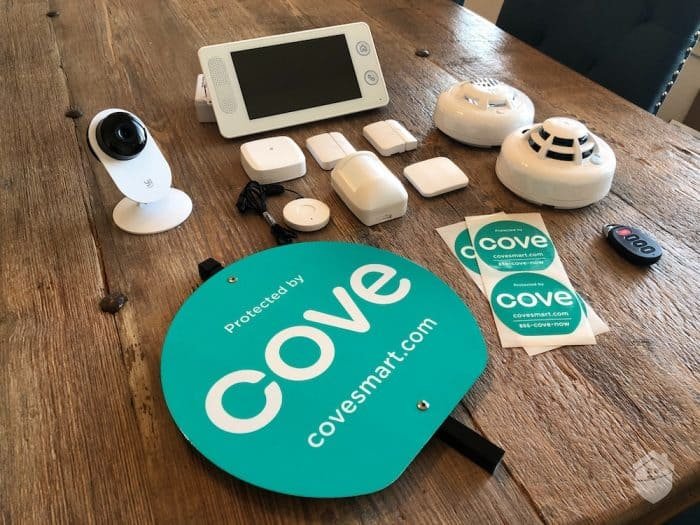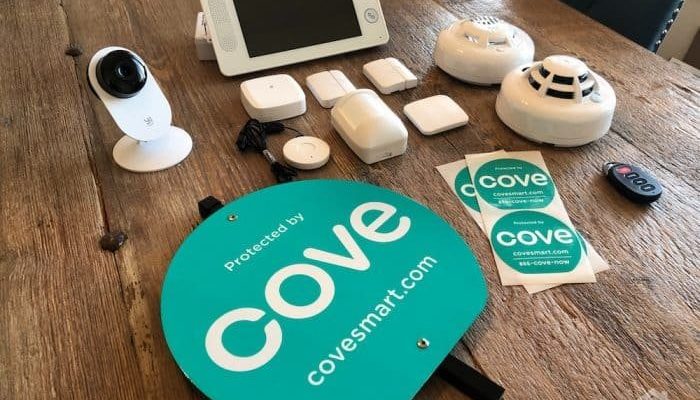
Honestly, deciding if you should pay extra for a Cove extended warranty isn’t as black-and-white as you might hope. If you’re picturing yourself arguing with customer support while your security system blinks “error code” at you, you’re not alone. So, let’s break this down. Is an extended warranty for Cove Security really a smart backup plan—or are you just paying for an umbrella you’ll never open?
What Is a Cove Security System Extended Warranty?
Let’s start by getting clear on what an **extended warranty** is. With Cove Security, you get a basic warranty right out of the box—they’ll fix or replace faulty equipment for a limited time, usually a year. An extended warranty stretches that coverage, sometimes for several more years, protecting you from out-of-pocket repair or replacement costs if something goes wrong down the road.
Think of it this way: your Cove system is a bit like a modern car. The standard warranty might cover you while things are new and shiny, but once you’re a couple years in, you’re on your own unless you pay for extra coverage. The extended warranty steps in when the original coverage runs out, handling things like failed control panels, unresponsive remotes, or sensor battery issues. It’s a bit of insurance—just in case.
But here’s the thing: every extended warranty (especially for security systems) comes with rules. Some only cover certain parts, others require that you stick to specific troubleshooting steps or keep the original receipt. Not every break is covered, and you might need to code or reset the system before they’ll help. Understanding what’s included is key before you decide if it’s worth the extra investment.
How Does Cove’s Extended Warranty Actually Work?
So you’re leaning towards extra protection—how does Cove’s warranty process play out? When you buy Cove’s extended warranty, you basically buy extra time. If your remote won’t pair, your keypad displays strange error codes, or you notice sensors draining battery faster than normal, you contact Cove support. They’ll usually walk you through some troubleshooting steps first: syncing devices, resetting the base station, or swapping out batteries.
If the issue can’t be fixed with those steps, the warranty kicks in. Cove may ship you a replacement part, or, in some cases, send a technician if the problem is more complex. Terms can vary, so it’s smart to read the fine print before you shell out extra cash. Some plans cover accidental damage, while others don’t. And if your issue is due to user error (like skipping software updates or using the wrong kind of battery), you might be out of luck.
Honestly, the warranty process isn’t instant—there’s usually a bit of back-and-forth. Have your receipts and serial numbers handy, and expect to describe exactly what went wrong or how you tried to reset or code your remote. It’s not a magical fix, but for some people, the security of knowing help is available makes the extra cost feel worthwhile.
What Does the Extended Warranty Cover—and What’s Off Limits?
You might be wondering: does the extended warranty cover every possible problem with your Cove Security system? Spoiler alert: not always. Here’s what’s usually included:
- Hardware defects: If your main panel, motion sensors, or remotes stop working for no obvious reason, you’re covered.
- Battery replacement (sometimes): Some plans include support for built-in batteries, but user-replaceable batteries usually aren’t covered.
- Pairing and sync failures: If your devices won’t communicate, or you need help troubleshooting connection issues, you’re in good shape.
- Replacement parts: If something can’t be fixed, you’ll often get a new unit sent your way.
But—and this is a big one—there are limits:
- User error: Damage caused by dropping your remote in the pool or hacking the code (literally or figuratively) voids coverage.
- Unauthorized repairs: If you try to fix things yourself or go to a third-party, you may lose your warranty entirely.
- Cosmetic damage: Scuffs, scratches, or yellowing plastic aren’t covered—this is for function, not looks.
- Power surges or natural disasters: Extended warranties rarely cover damage from lightning, floods, or fires.
Pro tip: Always read Cove’s actual warranty terms. What counts as a “covered event” can change, and you don’t want surprises if your equipment needs help.
How Much Does Cove Extended Warranty Cost—and Is It a Fair Deal?
Alright, let’s talk dollars and cents. Extended warranties aren’t free—expect to pay either a one-time fee or a small monthly charge, depending on your package and what you want covered. Cove’s prices are generally mid-range compared to the security industry: not the cheapest, not the most expensive. But does paying extra make sense?
Here’s where it gets personal. If you’re the type who hates risk and wants every “what if” covered, that extra charge might feel like a no-brainer. If you’re handy with a screwdriver, have a knack for troubleshooting, and figure you could code or reset devices yourself, you might see it as optional. For example, if your system costs $300 up front and the extended warranty is $60, ask yourself: do you think you’ll face $60 in repairs? Or would that money be better saved for a rainy day?
A simple comparison table can help:
| Standard Warranty | Included for 1 year | Covers manufacturing defects, some batteries, sync issues |
| Extended Warranty | Additional fee | Covers same issues for multiple years, some accidental coverage |
Let me explain—sometimes, the security of knowing you’ll never pay for a remote replacement or system reset again is enough to justify the price. For others, especially if you’re tech-savvy or planning to upgrade soon anyway, it might not add up.
Are There Any Downsides to Extended Warranties?
Here’s something people don’t always mention: an extended warranty for your Cove Security system isn’t always a win. Sometimes it can actually feel like you’re paying for peace of mind you’ll never use. Most modern home security gear is designed to last. Unless you’re dealing with extreme conditions—think pets chewing wires or constant power surges—major failures are rare during the first few years.
There’s also the “fine print” factor. Companies add lots of exclusions to keep costs down. For example, if your remote stops syncing because of a WiFi update or failed battery, but you used a third-party charger, you risk voiding the warranty. Or maybe your system glitches, you try a DIY fix, and suddenly, Cove says your coverage is gone. The process can feel like running through hoops just to claim what you paid for.
Honestly, if wrangling support tickets, emailing receipts, and waiting weeks for a replacement sounds exhausting, you might prefer to skip the warranty and just pay for repairs if they come up.
One more thing: if you already have renters or homeowners insurance, check the policy. Sometimes your security gear is covered for major issues, making the extended warranty feel redundant.
When Does an Extended Warranty Make Sense for Cove Security?
Let’s get practical. If you’re new to home security, nervous about tech issues, or need every device—remotes, sensors, cameras—to work 24/7, an extended warranty can offer valuable peace of mind. Maybe you’re away often, rely on the system for elderly relatives, or have sensors in tough spots (think: garages or humid attics). In these cases, knowing a quick replacement is just a phone call away is worth the price.
But if you’re a DIY type who loves to tinker, isn’t fazed by code errors, or plans to upgrade your security system every couple of years, the warranty might be overkill. Cove’s support is generally solid, so if something simple goes wrong—like needing to reset a remote or replace a battery—you might be comfortable handling it yourself. Extended coverage is best for those who want zero hassle, even if it costs a bit more in the long run.
Here’s a real-world example: my neighbor, Sarah, bought Cove because her job keeps her on the road. Within two years, a motion sensor failed. With the extended warranty, she had a free replacement in days. Was it worth it for her? Absolutely. For someone who’s home and handy, she might have skipped the extra expense and fixed it herself.
Alternatives to Extended Warranties for Home Security Systems
You don’t always have to say “yes” to the extended warranty upsell. Sometimes the best move is to set aside a bit of money for future repairs, or to lean on Cove’s basic coverage and great customer support. Another option is to invest in universal remotes or third-party sensors—just double-check compatibility and make sure you’re not voiding your existing warranty by mixing brands.
- DIY repairs: Many Cove issues are fixable at home—resetting a panel, troubleshooting sync problems, or swapping a battery can often fix the problem without a warranty claim.
- Homeowners insurance: Some policies include protection for home security systems. Check if you’re already covered for major losses.
- Upgrading regularly: If you like keeping up with the latest tech, you might upgrade your system before an extended warranty pays for itself.
Don’t forget, Cove’s reputation for support is strong. If you’re stuck, their team can help walk you through most troubleshooting steps—often without needing a warranty claim at all.
Should You Get the Extended Warranty? Final Thoughts
Deciding if an **extended warranty for Cove Security Systems is worth it** comes down to your comfort level with risk, cost, and convenience. For some, it’s the perfect safety net—covering issues with remotes, code errors, or tricky troubleshooting that would otherwise cost time and money. For others, especially those willing to code, reset, or pair devices on their own, it may be an unnecessary expense.
Here’s the thing: warranties are about peace of mind, not guarantees. If having a clear backup plan helps you sleep better, or if you rely on your Cove Security system every day, the extra cost might feel like a small price for big reassurance. If you’re confident in your tech skills or happy to self-insure, trust yourself—and don’t let the fear of a remote gone wrong sway you.
Either way, understanding exactly what’s covered, what’s excluded, and how the process feels day-to-day will help you make the best decision for your home. And hey, if you ever do end up needing a replacement part or expert troubleshooting, at least you’ll know what to expect—warranty or not.
